
Meghan Rosen is a senior writer who reports on the life sciences for Science News. She earned a Ph.D. in biochemistry and molecular biology with an emphasis in biotechnology from the University of California, Davis. Her dissertation work involved studying mutated proteins in liver and kidney cancer. She later graduated from the science communication program at UC Santa Cruz. Prior to joining Science News in 2022, she was a media relations manager at the Howard Hughes Medical Institute. Her work has appeared in Wired, Science, and The Washington Post, among other outlets. Once for McSweeney’s, she wrote about her kids’ habit of handing her trash, a story that still makes her (and them) laugh.

Trustworthy journalism comes at a price.
Scientists and journalists share a core belief in questioning, observing and verifying to reach the truth. Science News reports on crucial research and discovery across science disciplines. We need your financial support to make it happen – every contribution makes a difference.
All Stories by Meghan Rosen
-
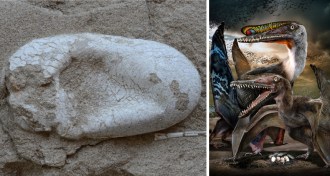 Paleontology
PaleontologyPreserved pterosaur eggs hint at reptile’s social life
The first 3-D pterosaur eggs, which were found in China, suggest that the flying reptiles laid eggs together.
-
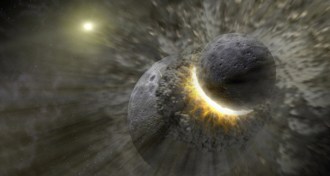 Planetary Science
Planetary ScienceMoon’s origins revealed in rocks’ chemistry
A new chemical measurement of rocks from Earth and from the moon supports the giant impact hypothesis, which explains how the moon formed billions of years ago.
-
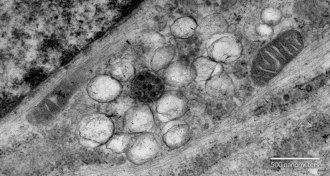 Life
LifeDrug candidate takes new aim at MERS
An experimental drug that shuts down construction of virus-making factories could become a new weapon against MERS.
-
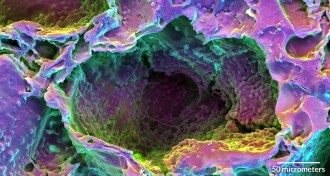 Tech
TechLasers heal damaged rodent teeth
Handheld laser spurs stem cells into action, regrowing dentin in drilled teeth.
-
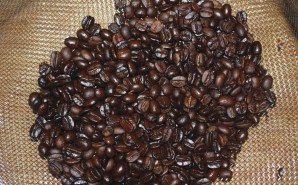 Tech
TechCoffee beans sing distinct tune
Measuring the crackling noises made by roasting coffee beans could help engineers create automatic acoustic roasters.
-
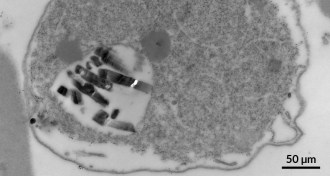 Health & Medicine
Health & MedicineParasite protein offers new hope for malaria vaccine
A newly discovered malarial protein triggers the immune system to trap disease-causing parasites in red blood cells. The protein offers scientists a promising target for vaccines.
-
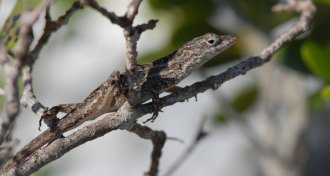 Animals
AnimalsLizards may scale back head bobbing to avoid predators
Brown anoles may scale back mating signals to avoid being eaten.
-
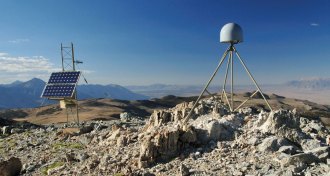 Earth
EarthTiny earthquakes may follow groundwater loss
Draining California’s aquifers may stress San Andreas Fault, triggering earthquakes and forcing mountains to rise.
-
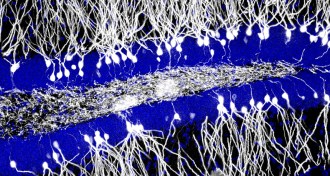 Neuroscience
NeuroscienceBirth of new brain cells might erase babies’ memories
The growth of new neurons in early childhood may explain why adults can’t remember being infants.
-
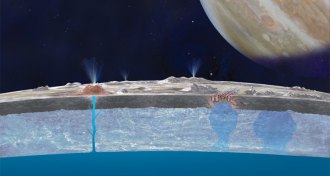 Planetary Science
Planetary ScienceThe ice of a distant moon
Jupiter’s moon Europa hides a liquid ocean, and conceivably life, under kilometers of ice. The challenge for engineers is how to penetrate that frozen barrier with technology that can be launched into space and operated remotely.
-
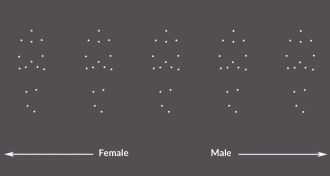 Neuroscience
NeuroscienceHumans can sniff out gender
A new study adds to controversy of whether people have pheromones.
-
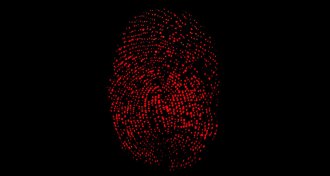 Chemistry
ChemistryColor-changing polymer maps fingerprints
Tiny beads of sweat may offer new way to identify people’s fingerprints.